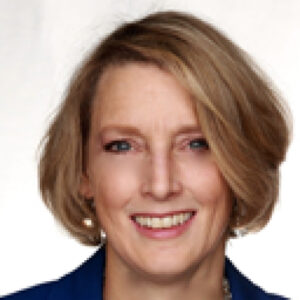
What does it take to curate and foster a thriving entrepreneurial ecosystem? That was the question addressed by Kathy Henrich of the MKE Tech Hub Coalition and Ian Hathaway, author of The Startup Community Way and co-founder and general partner of Far Out Ventures during a discussion at +Venture North.

Ian Hathaway

Kathy Henrich
Hathaway, who is a former Techstars employee says that his “why” is based in the Techstars motto, “Helping entrepreneurs succeed.” In service to that, the pair discussed the importance of collaboration and being a good steward of the community.
Everybody in the ecosystem has a unique and necessary role to play and the key is the interaction between the players. Unlocking the value of the information that different players such as universities, companies, founders, VCs and other support groups have requires sharing it.
Often, it’s individual micro-actions that each of us can do that can make all the difference. Give time, have coffee with an entrepreneur, make an introduction. These acts are simple things anybody can do to help foster a healthy innovation ecosystem and maybe even change the trajectory of a startup.
Henrich and Hathaway discussed metrics and measurement with Hathaway noting that start up rankings were not a good metric. He encouraged attendees to determine if things are improving or not based on their everyday experiences, not a list published on a website someplace. He also suggested that events like +Venture North are great for an ecosystem, however, the key metric is not how many people attended, but what happens afterward. How many critical conversations and introductions were made and what are those players doing next?
Hathaway wrapped-up the 1:1 chat with Henrich by encouraging Midwesterners to “start lifting your profile and showcase your successes. Stop being humble. Tell your stories. Celebrate entrepreneurship.”
Panel Discussion
Following the fireside chat, a panel of key ecosystem players was brought up to get their response. Taking a macro to micro approach, the panelists represented the State, a region and a local corporation whose growth trajectory has transformed Madison.
That advice from Hathaway to start showcasing the region’s successes resonated with the panel discussion which included Sam Rikkers of the Wisconsin Economic Development Corporation (WEDC), Jason Fields of the Madison Region Economic Partnership (MadREP) and Katie Boyce of Exact Sciences.
Fields spirited response to Hathaway’s admonition was “Everybody wants to be second all the time. We suck at telling our story – It’s like we don’t want to tell people all of the good stuff we do.” He encouraged the group to do better and focus on collaboration to lift up everybody in the ecosystem, especially undervalued and underrepresented entrepreneurs.
Rikkers built on that sentiment by noting that everybody in the room has the potential to add value suggesting that we need to unite a little more and “get the egos out of the room.”
The new Regional Tech Hub designation for the state is a great example of collaboration noted Boyce who said, “It was critical that Wisconsin had one united application and those were tough discussions.”
The group wrapped up the discussion talking about how important it is for people within the ecosystem to care about it and return value to it.
“The equation is simple: you need a large success or a few and those founders need to care what happens next and be committed to that community,” said Hathaway. “Success can happen anywhere, but it really matters what we do with that.”
Though panelists represented very different types of organizations with different focus areas, they found common ground on several key takeaways from the session: